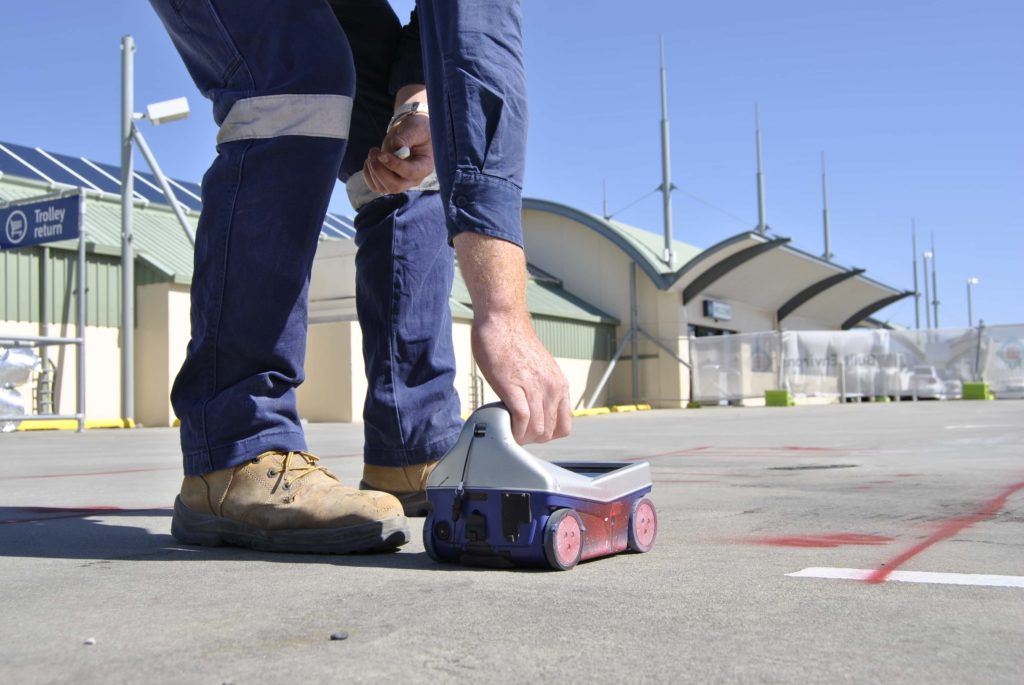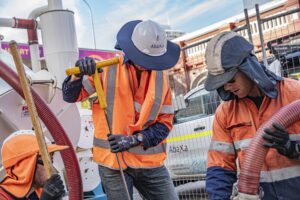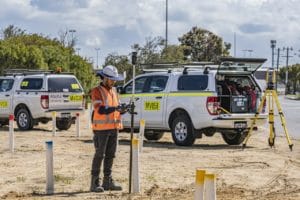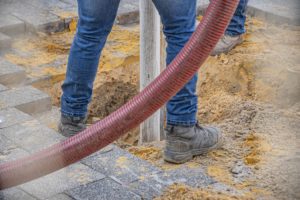Every construction site should adopt a safety-first approach. Whether you’re cutting, coring or drilling – it’s vital you do all the necessary checks and scans to ensure you don’t damage any pipes, cables, rebar or existing structures.
Imagine being responsible for shutting down a worksite because you failed to carry out basic checks? Even worse, being responsible for an onsite injury. It’s not worth the risk.
One essential component of the construction process is concrete scanning. It should be one of the first steps of the construction process because, if carried out correctly, it can help you avoid several potential disasters.
But, is all concrete scanning the same? The short answer is no. Aside from the technical capability of the scanning equipment, you’ll need to ensure you hire a highly experienced operator. To help you choose the right operator for your job, let’s take a closer look at concrete scanning.
What is Concrete Scanning?
Concrete scanning uses 3D radar technology to inspect and evaluate concrete structures. The technology can precisely locate any obstacle embedded in the concrete and any nearby utility cables and pipes. The advanced technology used by Abaxa can also measure the thickness of any concrete slab and the quality of the concrete structure.
Sometimes referred to as an x-ray scanner, a concrete scanner is primarily used to pinpoint areas that are safe for drilling, cutting or coring. Similar to a Ground Penetrating Radar (GPR), a concrete scanner is non-destructive and extremely accurate. The scanner has a 1600Mhz antennae, which can collect data instantly. There’s no need for traditional testing methods, as concrete scanning will provide all the analytical information you’ll need. Even where only single-sided access is available, the concrete scanner can locate targets in real-time.
Why use Concrete Scanning?
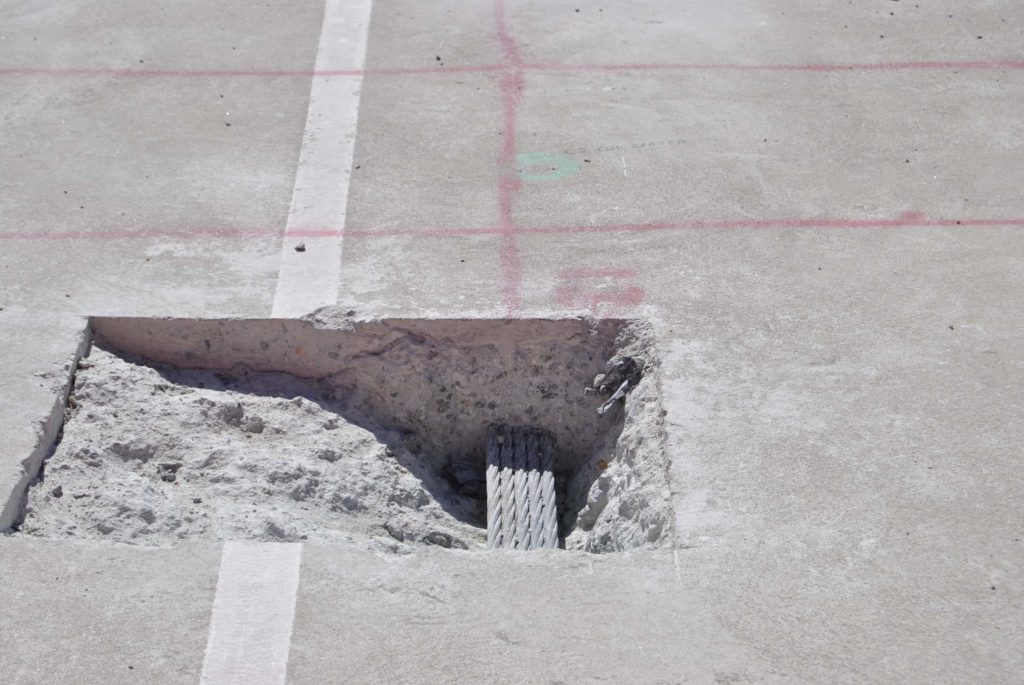
The only way to know what is located within or under a concrete structure is with real-time concrete scanning. Relying on hard copy plans is fraught with danger. But beyond pinpointing the precise location for drilling or cutting, concrete scanning is all about workplace safety and minimising downtime.
By choosing to use a concrete scanner you’re minimising the chance of damaging plumbing, optic and electrical cables and any vital structural supports. It’s the fastest and most cost-effective way to determine the quality and contents of the concrete you’re working with.
What can Concrete Scanning detect?

When scanning concrete slabs, walls or any other concrete structure, the concrete scanner can locate or measure:
- Areas that are safe to drill, cut or demolish
- Depth of steel reinforcement and post-tension cables
- Depth of embedded metal or plastic conduits
- Concrete slab thickness
- Metallic or non-metallic targets
- Condition of the existing concrete (including fractures)
Concrete scanning may also be used to assist with inspections of bridges, tunnels, monuments, balconies, towers and ceiling inspections.
Who should carry out Concrete Scanning?
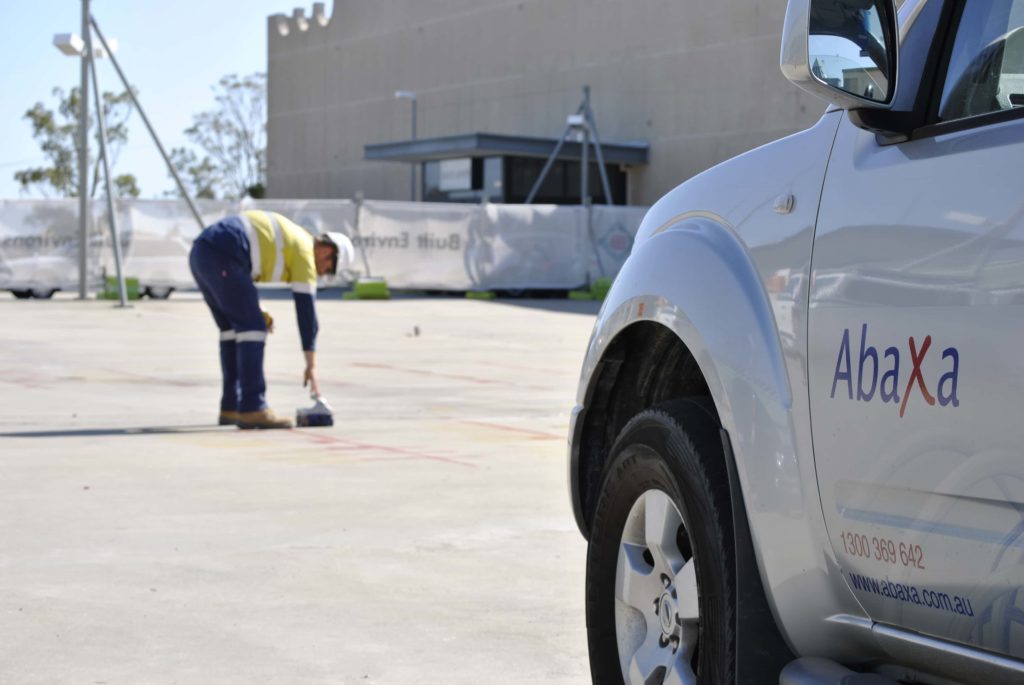
Hiring a qualified technician to carry out the concrete scanning is a wise investment. Make sure your technician is fully accredited to identify, locate and protect underground services, like water, power, sewerage and communication. Having an experienced person operating the concrete scanner will help you mitigate risk and have your site up and operational as soon as possible.
Ask your technician if they hold the following accreditations:
- Dial Before You Dig
- RIICCM202A: Identify, Locate & Protect Underground Services
- Australian Standard 5488.1-2019
- WHS Legislation
If you have further questions about concrete scanning, contact Abaxa today. For over 30 years, Abaxa has been providing concrete scanning services to Australian worksites. Our specialist technicians will help keep your project moving, so you can finish on time and on budget.
To book, or schedule a project discovery meeting, contact Abaxa or call 1300 369 642.


